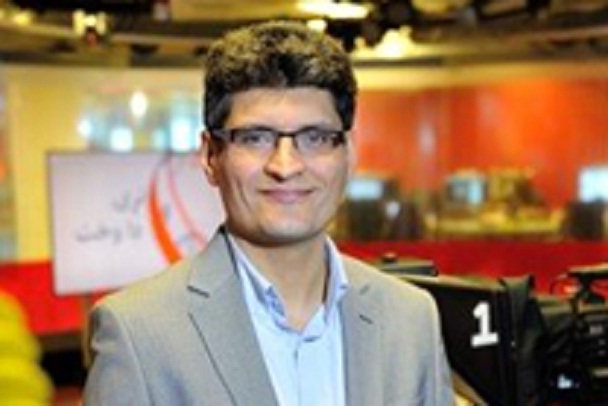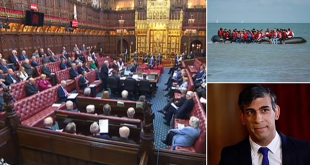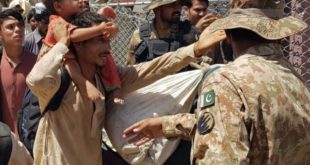AT-KABUL: The British Broadcasting Corporation (BBC) is not strange to ears and eyes. BBC is covering Afghanistan for over decades. It is covering the Afghan conflict, social, cultural, economical, political and other issues from different angles. The corporation is popular among Afghans by its acronym.
BBC has recently launched a new Pashto program “Naray Da Wakht” (voice of the age or time). The program has gained popularity in short time. Speaking about the program, Multimedia Editor of the BBC Afghan service Emal Pasarly said that balanced approach to news coverage is key to understanding between people.
Here is a transcript of his interview with Afghanistan Times on the new Pashto program.
AT: In how many countries exactly the new program is broadcasted or watched (excluding Afghanistan and Pakistan)?
Emal Pasarly: BBC Naray Da Wakht is available for viewing all over the globe through the BBC Pashto website bbcpashto.com and the BBC Pashto YouTube channel.
AT: People in Pakistan speak Pashto differently than Afghans. They don’t know many words and dictums. How, you are dealing with this problem?
Emal Pasarly: The BBC started to broadcast in Pashto in 1981, and from the very beginning Pashto-speakers in Pakistan have been an important part of our audience. I don’t think they have had issues with understanding our language. The language style of our TV programming – including BBC Naray Da Wakht – is based on the same standards.
AT: How the presenters are dealing with the problem of accent? Take for instance Pashto spoken by people in southern and eastern Afghanistan. People in the two regions of the country pronounce words differently.
Emal Pasarly: While it is natural for our presenters to speak with their regional accents, BBC Pashto’s written content is based on standard Pashto usage.
AT: How the presenters handle complex and conflicting statements and questions regarding relations between Afghanistan and Pakistan, especially insecurity and peace process, because the program is watched in the two countries?
Emal Pasarly: No matter what we cover–from politics and business to technology, sports and culture–BBC journalists stick to the principles of accuracy, fairness, impartiality and balance. Our job is to tell our audiences what’s happening and what has been said, based on the BBC’s regional and global newsgathering operation which is unparalleled among the world’s international broadcasters. It is for our audiences–on radio, TV, online, mobiles etc–to draw their conclusions.
AT: Apart from educating and informing Pashto-speaking viewers, does the program aim to promote regional harmony and the culture of tolerance? How this objective will be achieved?
Emal Pasarly: I really believe that access to independent, balanced, accurate news and information is key to understanding between people. Balanced approach to news coverage – when you let all sides of any issue to be heard, to be made known to the audience – is a very important condition of getting people to better understand each other and to establish a dialogue between them. BBC Naray Da Wakht brings global and regional news reporting – from the BBC Afghan team as well as from the journalists and reporters at BBC Persian, BBC Urdu and the rest of the BBC’s global newsgathering network. We work together to bring our audiences, wherever they are, a regional and global perspective of events, reporting the news from Afghanistan, Pakistan, Iran, Russia and beyond to the rest of the world – and bringing the world to them. In BBC Naray Da Wakhtas well is our other output, in addition to covering political and social issues, we also try to bring our audiences the best from the world of culture. Reliable, trustworthy information on any subject makes it easy for people to make good choices and decisions.
AT: As we know that the presenters also receive feedback. What is the most important issue for people in Afghanistan?
Emal Pasarly: Based on the feedback from our audiences via our interactive radio programs as well as social media and in the interactive slot of BBC Naray Da Wakht, we can see that, above all, they want impartial, accurate and balanced news and in-depth analysis. Those coming to the BBC are not only interested in Afghan news but also in regional and international news too. They want to be in the know about the world news and how Afghan issues resonate internationally.
AT: How much the viewers are interested in culture and technology related news?
Emal Pasarly: Very much so – in fact, our feedback shows that Afghans are interested in science and technology and want to know about latest developments. They are especially interested in stories that are not available via local media.
AT: How the viewers see the political landscape in Afghanistan while giving feedback? In which parts of Afghanistan this program is most watched?
Emal Pasarly: On BBC Naray Da Wakhtweekly interactive slot – Staso Ghazh(Have Your Say)– audiences share their views via phone-ins and social-media comments. The slot’s calling log shows that the program is watched all over Afghanistan. This is great news for the BBC Pashto team.
 Afghanistan Times
Afghanistan Times




